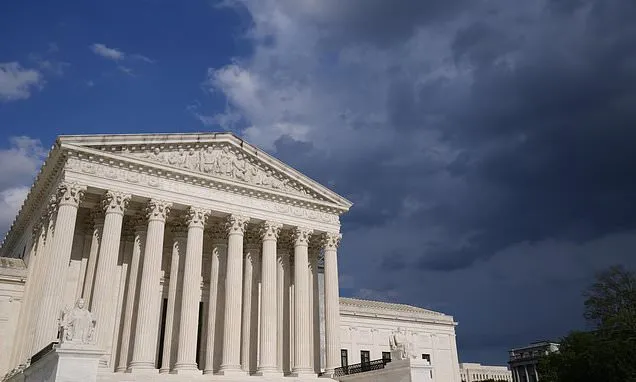WASHINGTON (AP) - A proposed western railroad expansion aimed at boosting crude oil production in Utah is coming before the Supreme Court Tuesday in a case that could have wider impact on federal environmental regulation. Here's a look at the case, which includes a recusal by one justice and arguments about how far the government should go in considering potential harm to the environment against the backdrop of climate change.
Only eight of the nine justices will hear the arguments. Justice Neil Gorsuch recused himself last week, citing the court's new code of ethics. He didn't offer further explanation, but he was facing calls to step aside over past ties to a Colorado billionaire who could benefit from boosted oil production in the region.
Philip Anschutz isn't a party to the case, but he owns oil wells in the area and his company filed a friend-of-the-court brief arguing that broader interpretation of the environmental law at the center of the case stymies development.
"Gorsuch represented Anschutz before becoming a judge, and recused himself from cases involving him when he sat on the 10th Circuit Court of Appeals," according to Accountable.us, which first called attention to their ties. A dozen Democratic lawmakers also urged him to step aside from this case in a letter last month.
The case centers on the Uinta Basin Railway, a proposed 88-mile (142-kilometer) expansion through hills of sandstone and sagebrush. The multibillion-dollar project would connect oil and gas producers to the broader rail network, allowing them to access larger markets and potentially quadrupling production.
The project won approval from regulators on the Surface Transportation Board under the National Environmental Policy Act. But environmental groups and a Colorado county said in a lawsuit that regulators should have considered broader potential environmental impacts, like increased wildfire risk and a potential train derailment that could dump oil into headwaters of the Colorado River.
A federal appeals court in Washington, D.C., agreed last year and overturned approval. Backers appealed to Supreme Court arguing regulators should only consider more direct impacts for project continuation.
The case turns on how federal agencies consider potential harm to environment during development approvals. Developers argue process delays projects for years; however, environmental groups see it as crucial protection for air and water quality.
The Biden administration takes an intermediate stance—defending regulators' decision while cautioning against overly limiting environmental law scope as railway supporters propose.
The court's conservative-majority has previously taken steps reducing federal regulator power such as striking down Chevron decision easing broad regulations setting by government.
